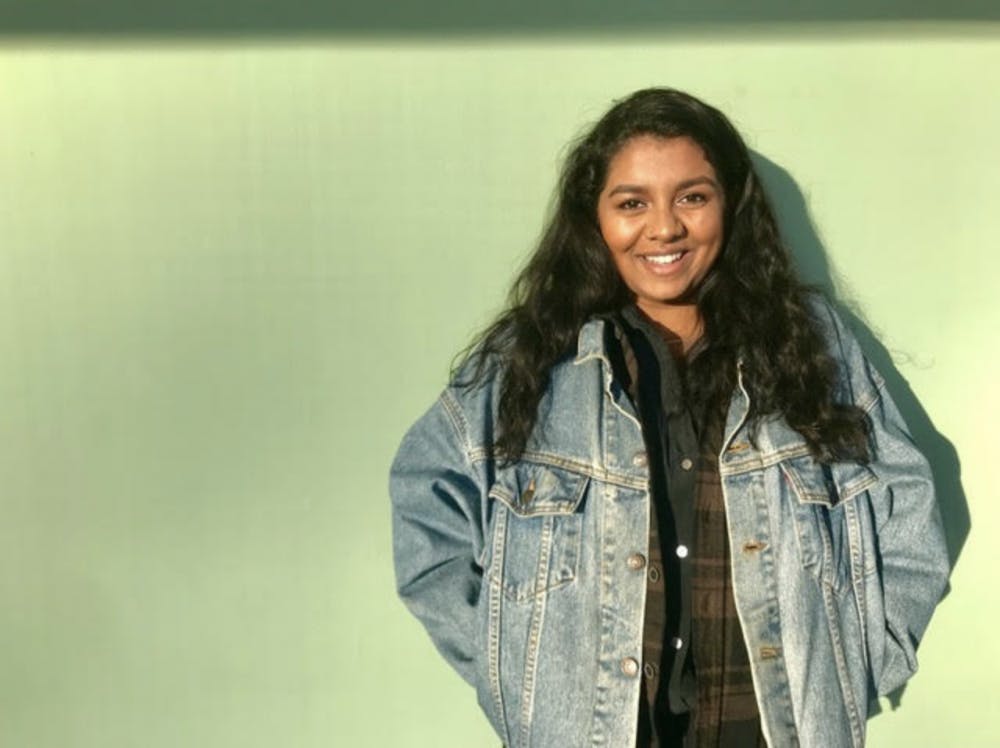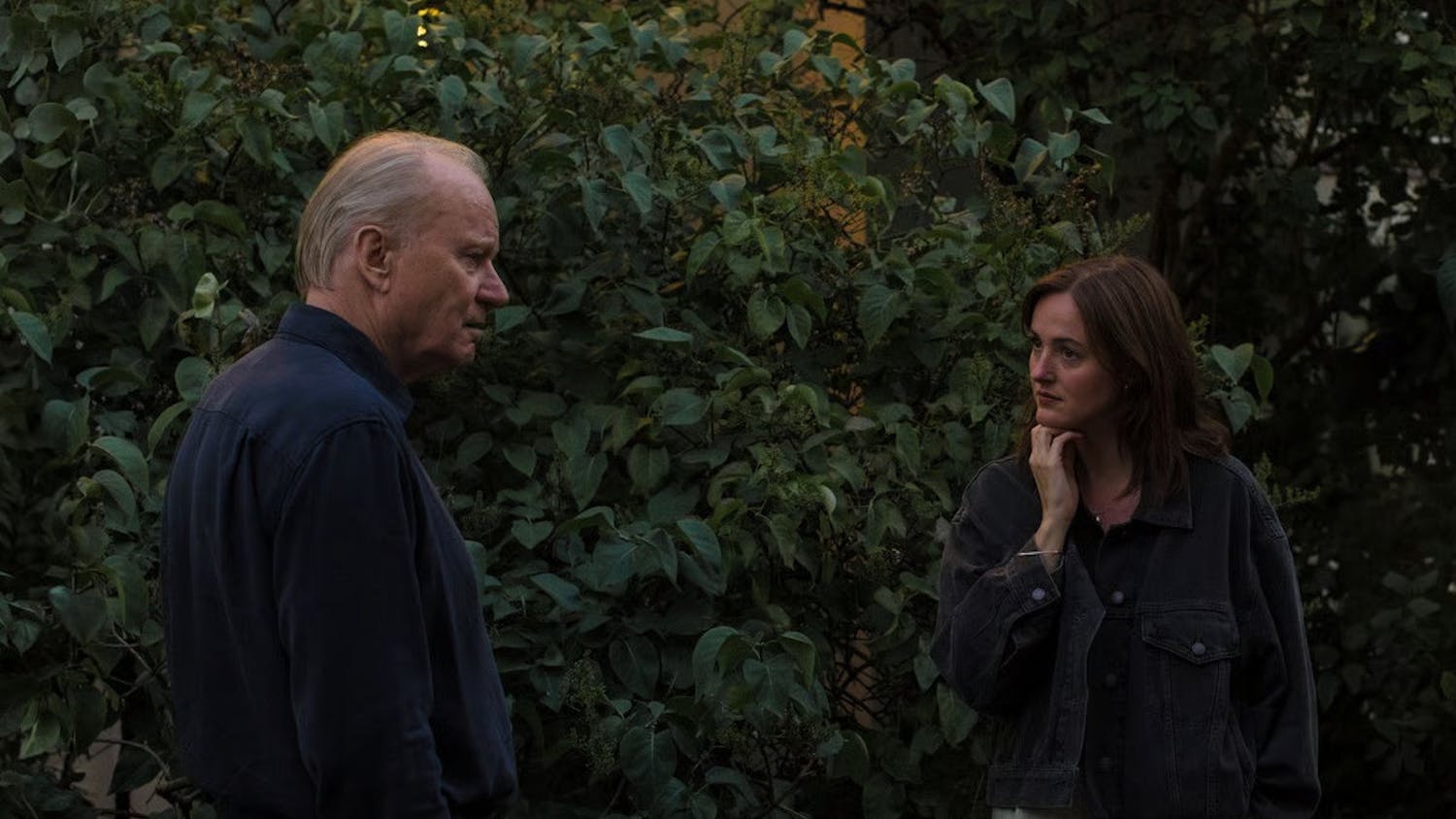On Monday, Oct. 8, I went to see a show presented by a group called Viva Kultura which had been touring in Europe and presented one of their first shows in Washington D.C. in the Kay Spiritual Life Center. The dance show was brought here by AU Vegetarians and Bhakti Yoga Club. The theme was Hinduism and Indian culture.
However, it was almost entirely comprised of white European dancers. The show depicted epic stories from the Ramayana such the story of Hindu God Rama and his wife Sita, along with having classical Indian songs and lyrics that are sacred to Hinduism and the Hindu tradition.
Having my culture represented by an almost entirely white troupe of dancers is incredibly frustrating. Additionally, the director, and other representatives of the theater company absolve themselves of cultural responsibility by saying that the point of the show is to increase exposure of Hinduism and its traditions. Hinduism is not widely practiced by white people. Hinduism is not widely practiced by Europeans. Hinduism is practiced mostly by South Asian people, who are historically not white and have faced discrimination for that.
The show’s intention was to represent the entirety of Hinduism, and having white people centered in the performance was not the way to go about it. Not only was it inaccurate, but when I raised this issue of cultural appropriation to the director and other members of the troupe, they did not see why we were offended and upset about this portrayal. They essentially stated that they understood our frustrations, but they don’t agree.
The sponsors of this show and the artists acted as if their actions were acceptable because they have converted to the Hare Krishna sect of Hinduism. The reality of this is that white European dancers will never know my intersectional experience as a Hindu woman, being a brown bodied person and the other aspects of systematic racism that I, as well as other South Asian people, have experienced. These people will never know my experience and will never have to think about knowing it. To place their narrative over mine and other people who practice Hinduism is a disservice.
India Day, which took place on the quad the same day and was also sponsored by the AU Vegetarians and Bhakti Yoga Club, showed a mere fraction of what India is and represents. India is the second most populous country in the world, containing people who practice several different religions. India is certainly not just Hinduism, and certainly not just the Hare Krishna Hindu sect represented by the troupe.
India has a vast history, including aspects which are marred by colonialism, and is home to the world’s oldest religion -- Hinduism. An “India fair” that is exclusive to some Hindu written works, vegetarianism and reincarnation creates a double standard when AU claims that it stands for being informative, inclusive and intersectional.
India is a fast-paced, globally competitive country which consists of innumerable intersections of identity, perspective, and experience. Additionally, India has a longstanding history with colonialism. The simplification of this fair into, quite frankly, propaganda for vegetarianism is an injustice to the fight against the lasting effects of colonialism, which continues to silence the voices of marginalized people.
This is not the first time that the South Asian Student Association has seen AU let other people use campus space to disrespect and commodify our culture. Earlier in the semester, I vocalized how vendors on the quad selling cultural artifacts and items is an issue of cultural appropriation. These vendors sell items with Hindu gods and cultural symbols on tapestries and T-shirts with no knowledge of the significance of the symbols.
In September, I spoke with Steve Oceans, who is the owner of Oceans Away, which brings these items to AU to sell. He told me he has no background in Hinduism, and that he buys these artifacts from overseas to sell in the United States. This allows for no information exchange about these items and creates a discourse that the selling of South Asian cultural items without any South Asians involved is permissible. It speaks to the trend of commodification and objectification of non-Western cultures. The university administration oversees who is in our space: what they are doing, what is being said, who is being represented and affected should be taken into consideration.
I am the president of the South Asian Student Association and a person who was raised in a Hindu and Indian household by parents who instilled in me the importance of representing who we are with concentrated accuracy, and being the best version of myself at all times. I did not find myself represented at all in any of the events that transpired and am appalled that an institution that strives towards inclusivity and diversity allowed these events to occur without any oversight or accountability with regards to the message being sent.
AU does not have a large South Asian population, and there is minimal representation of South Asian culture in academia and coursework, even within curriculum of courses hosted in the School of International Service. With such little representation, whatever exposure there is needs to be accurate.
From white vendors selling religious and culturally appropriative items on the quad to Monday’s shameful misrepresentation of India, I am tired of keeping quiet. This is my identity; these experiences make up who I am. We will no longer be ignored on campus.
Maya Krishnan is a junior in the School of International Service. They are an outside contributor. The opinions expressed by the author are theirs alone, and do not necessarily reflect the views of The Eagle and its staff.





